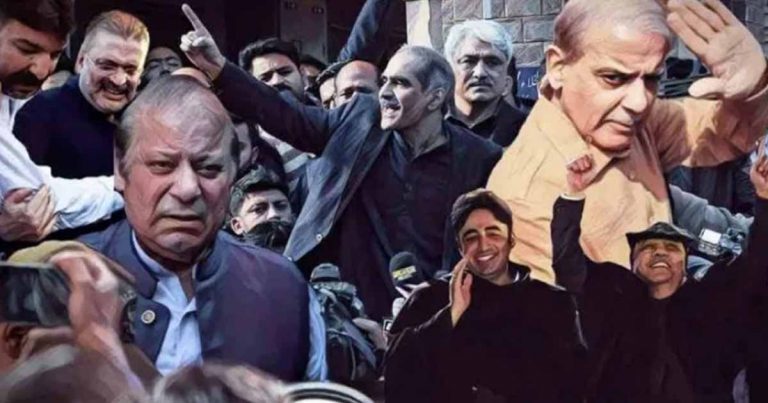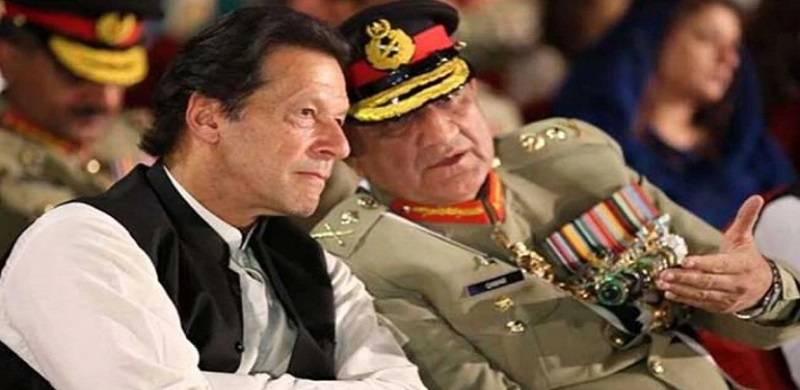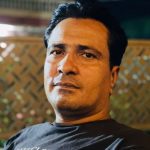
It is a calculated move considering Pakistan’s political challenges, both domestic and international
Dr. Shahban Sahito
The role of the establishment in Pakistani politics, though previously concealed, has become more publicly recognized due to controlled media. The establishment has been a constant presence in Pakistan’s political history, often deemed unconstitutional and met with public resistance. In the past, political parties avoided direct association with the establishment, but if their governments were overthrown, they would openly criticize the establishment’s role.
Nawaz Sharif, who had been in self-imposed exile for four years, has returned to Pakistan. He was disqualified by the Supreme Court on corruption charges in 2017, and Imran Khan played a pivotal role in undermining his government. Imran Khan later won the 2018 elections with establishment support.
During Imran Khan’s government, Nawaz Sharif’s party faced challenges. Imran Khan’s government enjoyed the support of General Bajwa and DG ISI General Faiz Hameed. Eventually, Nawaz Sharif left for exile on the pretext of a medical emergency, and this move was seen as a quid pro quo for granting an extension to General Bajwa in 2022. The establishment subsequently eased its stance on Nawaz League party leaders due to their leader’s compromise with the establishment.
Pakistan’s political history shows that certain political parties and classes serve as reserved forces for the establishment.
In a surprising turn of events, Shahbaz Sharif, Nawaz Sharif’s brother, maintained a reconciliatory approach with the establishment and succeeded in removing Imran Khan’s government through a vote of no-confidence on April 10, 2022. After a vote of no-confidence against Imran Khan, Shahbaz Sharif became the new Prime Minister under the PDM alliance government. This was made possible with the covert support of the establishment. In 17 months, Shahbaz Sharif’s government managed to win the confidence and rebuild trust with the establishment in favor of his brother, Nawaz Sharif.
Nawaz Sharif has returned to Pakistan as part of a deal. He challenged the establishment in the past, questioning why he was ousted. Interestingly, Imran Khan has adopted a similar narrative against the establishment. Nawaz Sharif’s exile was seen as an attempt to negotiate terms and conditions without interference from Imran Khan. While Nawaz League leadership, under Shahbaz Sharif, continued to engage with the establishment to reach a broader agreement before Nawaz’s return. Imran Khan was essentially a temporary establishment force to settle disputes and strained relations between military leaders and Nawaz Sharif’s party.
There are also civilian elites who work as paid employees of the establishment and have infiltrated various judicial, bureaucratic, economic, and political institutions
In the context of Pakistan’s political landscape, particularly in Punjab province, Nawaz Sharif’s party plays a pivotal role. It boasts significant representation of the Punjabi civil corporate elite. In the province, no other political party can claim to have as many civilian corporate elites. Other political parties in the province are seen as traditional and are often considered part of the establishment bloc. They conduct their corporate and commercial activities under establishment patronage or with the support of business and corporate elites, such as Tareen and Aleem Khan.
There are also civilian elites who work as paid employees of the establishment. These so-called civilian elites have infiltrated various judicial, bureaucratic, economic, and political institutions. They have consistently remained loyal and played a role in support of the establishment. Pakistani politics has witnessed civilian parties attempting to assert themselves in power and reduce the influence of the establishment as the decisive political force.
Nawaz Sharif’s return is part of an agreement and the National Reconciliation Ordinance (NRO). He is expected to require the support of the agencies in the 2024 elections. This prediction is shared by political analysts, and even Bilawal Bhutto, the chairman of PPP, whose father is closely aligned with the establishment, expressed dissatisfaction with the deal and special treatment offered to Nawaz Sharif upon his return. Nawaz Sharif is back with the assurance of establishment support in the 2024 election, and his legal cases have been handled with leniency.
Also read: With Nawaz Sharif’s return, politics comes full circle in Pakistan
The central question is why Nawaz Sharif remains relevant in Pakistani politics. Despite Imran Khan and the PTI’s efforts to cooperate with the establishment, they did not become the establishment’s ideal choice. This could be attributed to the fact that Nawaz’s party has strong roots in Punjab and enjoys support from civilian corporate elites. Other parties are often seen as extensions of the establishment and its patronage. Continuously supporting these puppet parties and politicians is viewed as risky because it can lead to conflicts of interest between civilian and military corporate interests, which would not be in the best interest of the province.
Pakistan’s political history shows that certain political parties and classes serve as reserved forces for the establishment. When the establishment needs them to protect its institutional interests, they are brought into active politics, but often not for extended periods. This phenomenon applies to the PTI and Imran Khan.
 The history of Pakistan also reveals that political leaders facing corruption charges have had their cases dropped and qualifications restored to allow them to participate in elections. This has been observed in the cases of Zardari and Nawaz, who benefited from the National Reconciliation Ordinance (NRO) in 2008, enabling them to contest elections.
The history of Pakistan also reveals that political leaders facing corruption charges have had their cases dropped and qualifications restored to allow them to participate in elections. This has been observed in the cases of Zardari and Nawaz, who benefited from the National Reconciliation Ordinance (NRO) in 2008, enabling them to contest elections.
It would not be surprising tomorrow Imran Khan strikes a deal with the establishment; if Nawaz Sharif fail to meet their expectations. Imran Khan’s party, PTI, still maintains some popularity in Punjab, which suggests that it could serve as a lever for the establishment.
Nawaz Sharif’s popularity has waned, especially among the middle class in Punjab, due to his dynastic ruling style and the concentration of influential positions within the Sharif family. This has led to internal dissent within the party, with some members disapproving of the family’s control over key positions of the government.
Nawaz Sharif’s return is part of a grand strategy, which extends beyond his individual strength or weakness. It is a calculated move considering Pakistan’s political challenges, both domestic and international, that require careful navigation. The deal struck between Nawaz Sharif and the establishment is influenced by these larger factors.
____________
 Dr. Shahban Sahito is Assistant Professor at Department of International Relations, University of Sindh, Jamshoro. Email: shahban.sahito@usindh.edu.pk
Dr. Shahban Sahito is Assistant Professor at Department of International Relations, University of Sindh, Jamshoro. Email: shahban.sahito@usindh.edu.pk